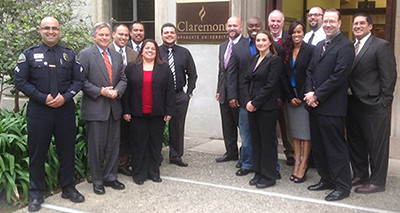
First-Year Sequence Courses
Intergovernmental Relations provides a background of the role of Native American tribes in the U.S. federal system. Much attention is given to explaining federalism in addition to tribal sovereignty and the tribe’s relations with state, local, and federal government. Tribal governments are one of the many forms of government in the United States including the national government in Washington, D.C., state governments, county governments, city governments, and special purpose governments like water districts, fire districts, and school districts. Each of these governments typically interacts to one degree or another with all the others. “Intergovernmental relations” is how political scientists refer to this interaction among the various governments.
Management & Organizational Behavior provides the systematic study of individual, group, and organizational behaviors and processes. Through case studies and other assigned readings, students learn to analyze organizational functioning for the purpose of enhancing personal and group effectiveness. Topics covered include motivation, leadership, cooperation, culture, decision-making, and organizational change.
Native American History, Constitutions and Law covers the following topics:
- Tribal sovereignty.
- The traditions and practices of the Serrano People and the San Manuel Band of Mission Indians.
- The historical transformation of Southern California and the impacts to the Serrano people from the Spanish arrival of the Mission system to the present day. Attention is also given to other tribes throughout North America.
- The relationships between the tribe, the federal government and state & local government.
- Contemporary issues and court cases affecting Native American tribes.
The Dynamics of Leadership explores what it means to be an outstanding leader in complex organizations. It focuses on emerging leaders and leaders below the executive level. Upon completion of the course, students will be equipped to serve as leaders in the routines of their daily jobs and through times when they face challenging dilemmas in their roles and responsibilities. This class enables emerging and beginning leaders to deal with the complexities of organizational life in a manner that is optimal for their organization and consistent with their personal values.
Second-Year Sequence Courses
Intergovernmental Relations For Decision Makers examines the evolution of tribal-federal-state relations through the context of American law and tribal sovereignty. Tribal law, American federalism, law enforcement, and public policy, among many other topics, are discussed.
The Dynamics of Tribal Governance & Tribal Gaming addresses the foundations and practices of tribal governance, tribal gaming, nation building, tribal strategic planning, economic development, and the application of IGRA today.
Special Topics in Native American History, Constitutions & Law reviews key tribal law decisions and topical cases affecting tribal sovereignty. Special emphasis is given to Public Law 280 and religious freedom among myriad other subjects.
Drucker on Management focuses on management theory, decision-making, and practical applications. Class discussions and assigned readings cover the challenges, tensions, and responsibilities of executive management, requiring integrative thinking, creativity, and solid scholarship of the students.
The Lecture Series
Lectures on Indian policy, tribal sovereignty and topical issues are presented by scholars, policy makers, elected officials, tribal dignitaries, and various practitioners (legal, etc). Events are held on the campus of Claremont Graduate University and on the San Manuel Band of Mission Indians Reservation.